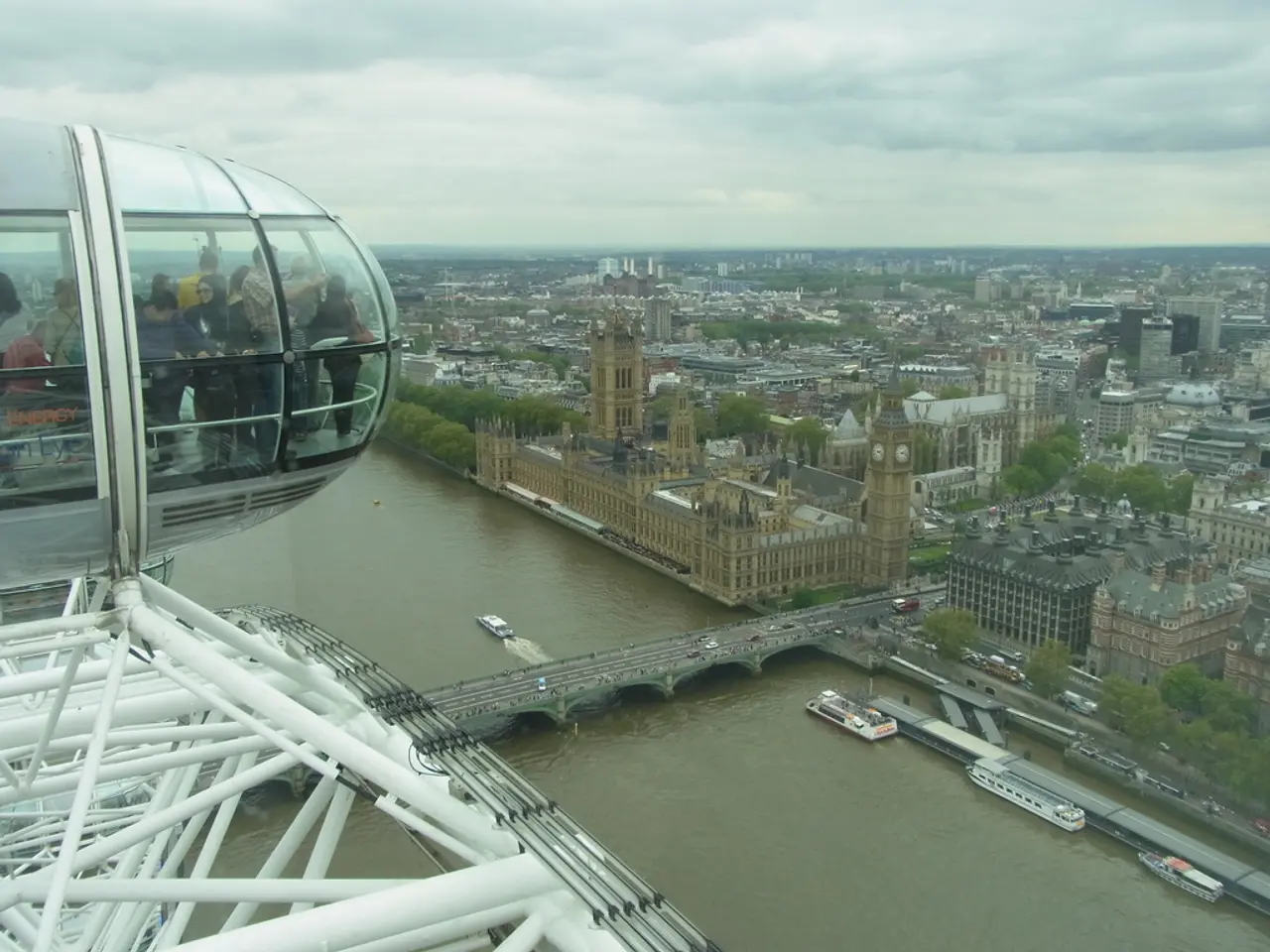In a striking twist, the birthplace of concepts surrounding American liberty, Britain, has adopted practices akin to despotism.
In the heart of Europe, the United Kingdom, a sovereign nation, encompasses England, Scotland, Wales, and Northern Ireland. Great Britain, the largest island in the British Isles, is home to England, Scotland, and Wales, but not Northern Ireland.
The landscape of modern England has been significantly altered by immigration, particularly from the Middle East and Africa, which began in the late 1990s and early 2000s. This shift has sparked a contentious debate, with some arguing that immigration policies have contributed to legal challenges and societal tensions, while others see these policies as necessary measures to manage migration.
Immigration Policies and Legal Challenges
The UK's immigration policies have faced numerous legal hurdles, particularly in relation to deportations and removals of unauthorized migrants. Legal challenges often arise due to concerns about the safety of deportees in their home countries, embodying the rule of law's emphasis on protecting human rights. The UK's adherence to international agreements like the Refugee Convention and the European Convention on Human Rights (ECHR) has also limited the ability to deport individuals freely.
Societal and Political Implications
The debate around immigration often polarizes public opinion and drives political discourse. Some argue that strict immigration policies are essential for national security and identity, while others view these policies as restrictive and harmful to social cohesion. Plans to enforce stricter immigration controls have been met with public protests and resistance from various groups, highlighting the tension between immigration policies and societal values of freedom and inclusivity.
Recent Reforms and Challenges
Recent reforms to the Skilled Worker visa route have been criticized for lacking adequate impact assessments and public consultation, raising concerns about the transparency and fairness of immigration policies. The increase in legal challenges to removals has complicated the process of deporting unauthorized migrants, reflecting a system balancing legal rights with the need to manage migration effectively.
In the political sphere, the election in July, which put Labour in power, has been seen as a significant step in transforming Britain. Some compare it to a Stalinist police state, with concerns about duplicitous justice and freedom of speech.
A Tragic Incident in London
In July, a 17-year-old son of Rwandan immigrants was responsible for a knife attack in London, resulting in the tragic death of three girls. The government withheld information on his identity, sparking online speculation and further fuelling tensions.
The Future of Britain
The government has warned citizens that they could be committing a crime if they repost, repeat, or amplify messages that are false, threatening, or stir up racial/religious hatred. The number of non-EU immigrants has averaged over 200,000 per year for a decade and then skyrocketed after 2020, raising questions about the future of Britain's demographic landscape. The government has threatened online platforms and Elon Musk if they allow prohibited speech, and plans to release 5,000 criminals from jail to make room for those guilty of "wrongthink."
London, home to 20% of England's population, has gone from approximately 80% native white British in 1991 to approximately 36% in 2021. This demographic shift, combined with the ongoing debate around immigration and the rule of law, paints a complex picture of modern England.
From a historical perspective, England has been a birthplace of freedom advocates such as John Locke, Edmund Burke, and William Wilberforce, who led the fight against the slave trade. The English Bill of Rights, established a decade after the Habeas Corpus Act, set out Parliamentary rights, the right to petition the king, and the freedom from cruel and unusual punishment. The Magna Carta, agreed to by King John in 1215, limited the King's powers, declared him subject to the law, guaranteed church rights, access to an impartial system of justice, and limited taxes.
In conclusion, the relationship between immigration and the shift away from freedom and the rule of law in modern England is influenced by legal challenges, societal tensions, and political debates. While some policies aim to manage migration more strictly, others argue these measures undermine human rights and social freedoms. The narrative is complex, and the future of Britain remains uncertain.
- The UK's immigration policies have faced numerous legal challenges, often centered around concerns for human rights, particularly in matters of deportations and removals of unauthorized migrants.
- The debate over immigration policies in the UK has polarized public opinion, fueling political discourse, and has led to plans for stricter immigration controls, which have met resistance and protests.
- Recent reforms to the Skilled Worker visa route have been criticized for insufficient impact assessments and public consultation, raising concerns about the transparency and fairness of immigration policies.
- The election that put Labour in power has been compared to a Stalinist police state, with concerns about duplicitous justice and freedom of speech.
- In July, a tragic knife attack in London resulted in the deaths of three girls, committed by a 17-year-old son of Rwandan immigrants, sparking online speculation and fueling tensions.
- The future of Britain's demographic landscape is a subject of debate, with the number of non-EU immigrants averaging over 200,000 per year for a decade, and then significantly increasing post-2020.
- The government has warned citizens that they could be committing a crime for reposting, repeating, or amplifying messages that are false, threatening, or stirring up racial/religious hatred.
- In the backdrop of these concerns, London, home to a large portion of England's population, has seen a demographic shift from approximately 80% native white British in 1991 to around 36% in 2021, reflecting a complex and evolving modern England.







